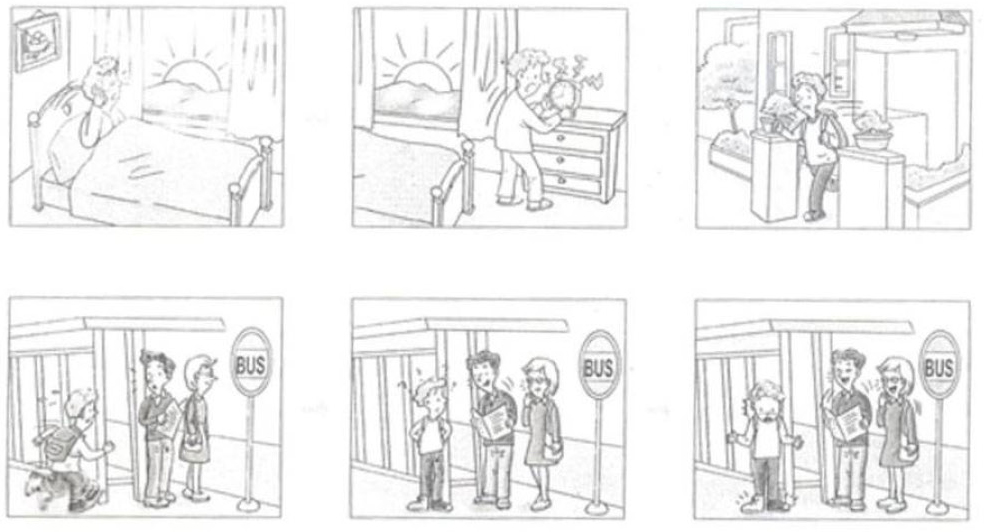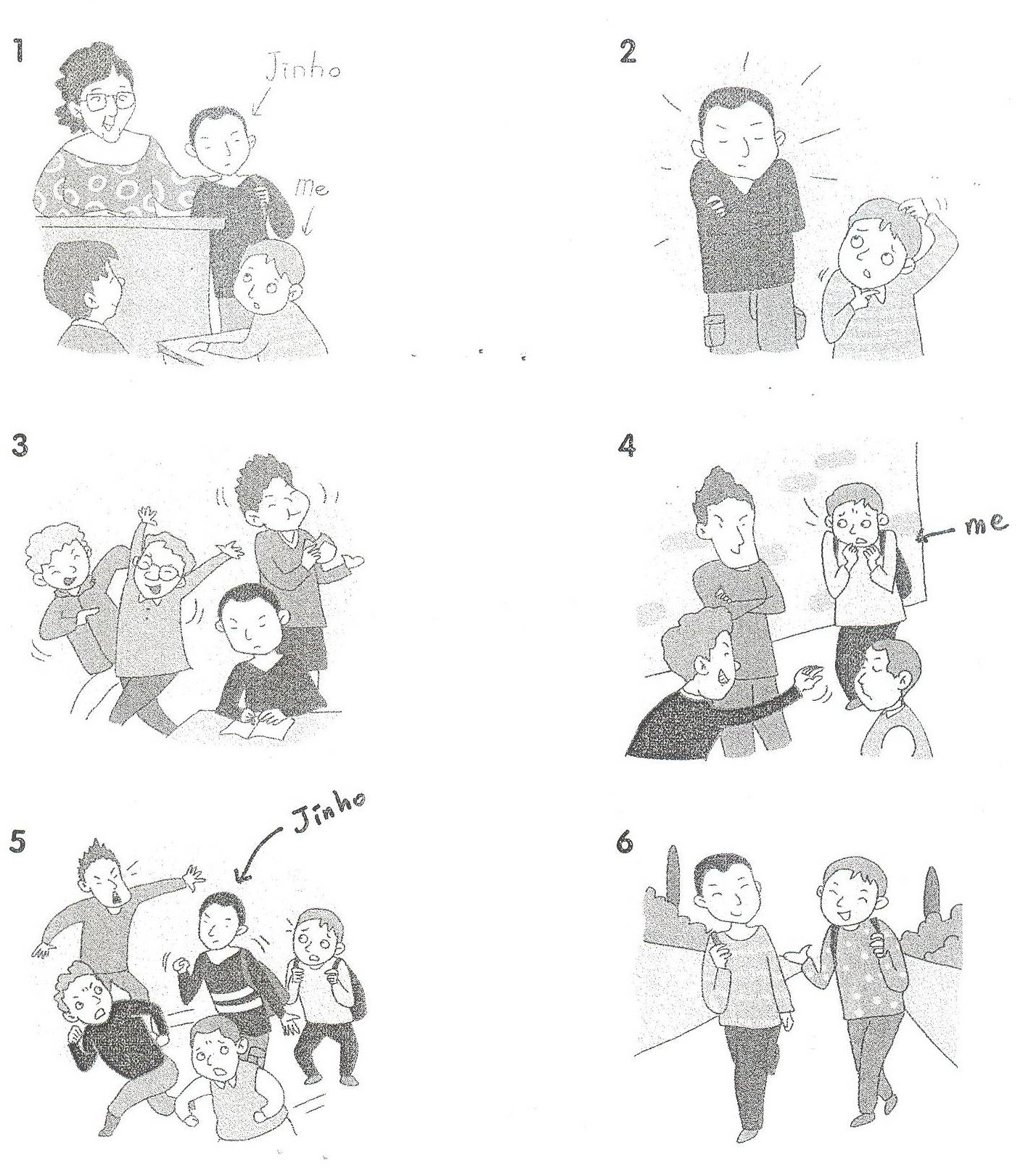
The Effects of Individual vs. Collaborative Pre-task Planning on Korean Middle School Learners’ English Oral Task Performance under Different Task Complexity
Abstract
Kang, Sooyeon. 2018. The effects of individual vs. collaborative pre-task planning on Korean middle school learners’ English oral task performance under different task complexity. Korean Journal of English Language and Linguistics 18-3, 306-327. This study investigated the effects of three different types of planning conditions on oral task performance under different task complexity. A total of 65 Korean middle school learners performed two individual narrative tasks with different complexity (i.e., simple vs. complex) under different planning conditions (i.e., individual, collaborative, and no planning). Their task performance was analyzed with respect to task completion, fluency, complexity, and accuracy. The major findings are as follows. First, planning itself resulted in greater fluency and accuracy than no planning. Second, collaborative planning was the most beneficial for task completion and accuracy. Third, individual planning led to smaller number of pauses denoting its beneficial effect for fluency than collaborative planning. Fourth, there was no interaction effect between the planning conditions and the complexity of tasks but task complexity itself had an impact on syntactic complexity; an increase in task complexity resulted in a decrease in syntactic complexity.
Keywords:
task-based language teaching, pre-task planning, collaborative planning, oral task performance, task complexityAcknowledgments
This paper is based on the author’s master’s thesis data.
References
- Baron, J., R. Gilabert and M. Levkina. 2011. Manipulating task complexity across task types and modes. In P. Robinson, ed., Second Language Task Complexity, 105-138. Amsterdam: John Benjamins.
-
Buckwalter, P. 2001. Repair sequences in Spanish L2 dyadic discourse: A descriptive study. The Modern Language Journal 85, 380-397.
[https://doi.org/10.1111/0026-7902.00115]

- Bygate, M. 2001. Effects of task repetition on the structure and control of oral language. In M. Bygate, P. Skehan and M. Swain, eds., Researching Pedagogic Task, Second Language Learning, Teaching and Testing, 23-49. Harlow: Longman.
- Ellis, R. 2003. Task-based Language Learning and Teaching. Oxford University Press.
-
Foster, P. and P. Skehan. 1996. The influence of planning and task type on second language performance. Studies in Second Language Acquisition 18(3), 299-323.
[https://doi.org/10.1017/S0272263100015047]

-
Foster, P. and P. Skehan. 1999. The influence of source of planning and focus of planning on task-based performance. Language Teaching Research 3(3), 215-247.
[https://doi.org/10.1177/136216889900300303]

-
Foster, P., A. Tonkyn and G. Wigglesworth. 2000. Measuring spoken language: A unit for all reasons. Applied Linguistics 21(3), 354-375.
[https://doi.org/10.1093/applin/21.3.354]

-
Geng, X. and G. Ferguson. 2013. Strategic planning in task-based language teaching: The effects of participatory structure and task type. System 41, 982-993.
[https://doi.org/10.1016/j.system.2013.09.005]

- Gilabert, R., J. Baron and M. Llanes. 2009. Manipulating cognitive complexity across task types and its impact on learners’ interaction during oral performance. International Review of Applied Linguistics 47(3-4), 367-395.
- Hahn, J. 2008. Challenges of task-based language teaching: With reference to Korean EFL teachers’ beliefs. English Language & Literature Teaching 14(3), 49-68.
-
Iwashita, N. 2001. The effect of learner proficiency on interactional moves and modified output in nonnative-nonnative interaction in Japanese as a foreign language. System 29, 267-287.
[https://doi.org/10.1016/S0346-251X(01)00015-X]

-
Kim, S. 2013. Performance evaluation in task-based language teaching: Suggested procedures for EFL class. English Language Teaching 25(4), 21-45.
[https://doi.org/10.17936/pkelt.2013.25.4.002]

-
Kim, Y. 2009. The effects of task complexity on learner-learner interaction. System 37(2), 254-268.
[https://doi.org/10.1016/j.system.2009.02.003]

- Korean Ministry of Education. 2000. Introduction to the 7th National Curriculum. Seoul, South Korea.
-
Mehnert, U. 1998. The effects of different lengths of time for planning on second language performance. Studies in Second Language Acquisition 20, 83-108.
[https://doi.org/10.1017/S0272263198001041]

- Michel, M. 2011. Effects of task complexity and interaction on L2 performance. In P. Robinson, ed., Second Language Task Complexity, 141-173. Amsterdam: John Benjamins.
- Michel, M., F. Kuiken and I. Vedder. 2009. The influence of complexity in monologic versus dialogic tasks in Dutch L2. IRAL 45(3), 241-259.
-
Mochizuki, N. and L. Ortega. 2008. Balancing communication and grammar in beginning level foreign language classrooms: A study of guided planning and relativization. Language Teaching Research 12, 11-37.
[https://doi.org/10.1177/1362168807084492]

- Norris, M. J., M. Bygate and K. Van den Branden. 2009. Introducing task-based language teaching. In K. Van den Branden, M. Bygate and M. J. Norris, eds., Task-based Language Teaching: A Reader, 1-13. Amsterdam: John Benjamins.
-
Ortega, L. 1999. Planning and focus on form in L2 oral performance. Studies in Second Language Acquisition 21, 109–148.
[https://doi.org/10.1017/S0272263199001047]

-
Robinson, P. 1995. Task complexity and second language narrative discourse. Language Learning 45, 99-140.
[https://doi.org/10.1111/j.1467-1770.1995.tb00964.x]

-
Robinson, P. 2001. Task complexity, task difficulty and task production: Exploring interactions in a componential framework. Applied Linguistics 22(1), 27-57.
[https://doi.org/10.1093/applin/22.1.27]

- Robinson, P. 2003. The cognition hypothesis, task design, and adult task-based language learning. Second Language Studies 21(2), 45-105.
-
Skehan, P. 1996. A framework for the implementation of task-based instruction. Applied Linguistics 17, 38-62.
[https://doi.org/10.1093/applin/17.1.38]

- Skehan, P. 1998. A Cognitive Approach to Language Learning. Oxford: Oxford University Press.
-
Skehan, P. and P. Forster. 1997. Task type and task processing conditions as influences on foreign language performance. Language Teaching Research 1(3), 185-211.
[https://doi.org/10.1177/136216889700100302]

- Swain, M. 1997. Collaborative dialogue: Its contribution to second language learning. Revista Canaria de Estudios Ingleses 34, 115-132.
- Tajima, M. 2003. The Effects of Planning on Oral Performance of Japanese as a Foreign Language. Unpublished doctoral dissertation, Purdue University, IN, USA.
- Wendel, J. N. 1997. Planning and Second-language Narrative Production. Unpublished doctoral dissertation, Temple University, PA, USA.
-
Wigglesworth, G. 1997. An investigation of planning time and proficiency level on oral test discourse. Language Testing 14(1), 21-44.
[https://doi.org/10.1177/026553229701400105]

-
Yuan, F. and R. Ellis. 2003. The effects of pretask planning and on-line planning on fluency, complexity, and accuracy in L2 monologic oral production. Applied Linguistics 24, 1–27.
[https://doi.org/10.1093/applin/24.1.1]

Appendix
Appendix A (Simple Task)
✩ 다음 6개의 그림을 보고 한 편의 '이야기'를 만들어 보세요. ✩ 노트 필기가 필요하면 아래 빈칸에 해보세요. 여백 아무데나 해도 좋습니다.
|
Appendix B (Complex Task)
✩ 다음 6개의 그림을 보고 한 편의 '이야기'를 만들어 보세요.
✩ 노트 필기가 필요하면 아래 빈칸에 해보세요. 여백 아무데나 해도 좋습니다.
|



